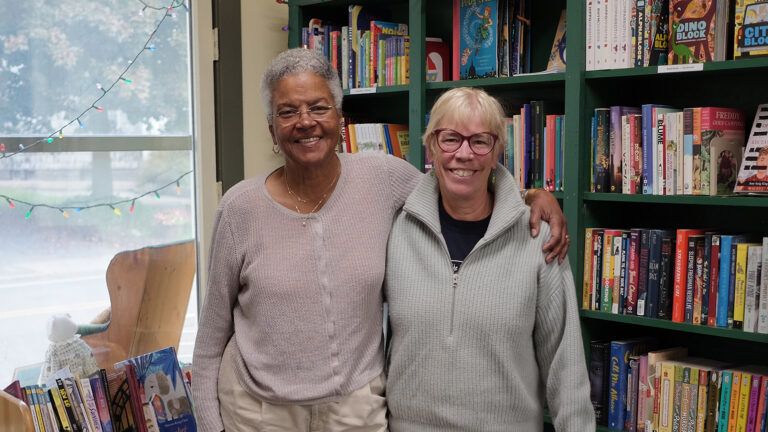Guideposts has launched a new fiction series, Ordinary Women of the Bible, imagining the lives of people who make the briefest of appearances in Scripture and yet have much to tell us about how to live in faith and expectation.
I was listening to my favorite Bible podcast when one of the guests—a guy, mind you—pointed out, “You know, it’s the women in the Gospels who get it about Jesus. They’re often the first to really understand who he is.” Wow, I thought, that’s something I’d never noticed before.
I took down my Bible and turned to Luke’s Gospel. Mary is there in the first chapter, of course, startled to learn from the angel Gabriel how she’s been called by God. She then goes to visit her relative Elizabeth, pregnant with John the Baptist, to share the good news. These two women are major figures in the age-old story, but as I kept turning the pages, it was the lesser-known women whose stories jumped out at me.
Like Anna the prophet, who had been waiting her whole life for the appearance of this savior. An 84-year-old widow, she never left the temple in Jerusalem, worshiping and praying day and night. When the infant Jesus is brought there to be blessed, Anna praises God, knowing that this is the one who will bring redemption to the world. It’s a cameo appearance. She appears, sees Jesus, understands who he is and then is gone.
Other women come onto the scene and, unlike the 12 disciples, don’t even get named, yet their holiness is called out. For instance, as Jesus watches the rich people making a big show of putting gifts into the collection box at the temple, calling attention to their wealth, he points to a poor widow who throws in two small copper coins, a mere mite. The rich are just giving their spare change. She has given everything she has.
Or consider the woman who had bled for 12 long years. She’d spent all her money on doctors, to no avail. Desperate for healing, she merely touches the hem of Jesus’ robe in the midst of a crowd. Her bleeding stops. He feels the power leave him and calls her out. “Daughter, your faith has healed you,” he says. “Go in peace.”
There is the woman with the alabaster vase full of perfumed oil. Uninvited, she enters the Pharisee’s house where Jesus is eating and kneels at his feet. Characterized as someone of dubious reputation, she weeps, wetting Jesus’s feet with her tears, wiping them with her hair, pouring the oil on them. The Pharisee is appalled. Not Jesus. “You didn’t anoint my head with oil,” he says to the man, “but she has poured perfumed oil on my feet.” He lets her know her sins are forgiven. “Your faith has saved you.”
In some traditions, the woman is thought to be Mary Magdalene, who makes an appearance—named—in the next chapter. The point in all these instances is that the people who come to Jesus in humility, in need and in the most abject circumstances know who he is. And their lives are changed.
I thought back to an Easter sermon our pastor once gave. She noted that at the Crucifixion it was the women who’d followed Jesus from Galilee who stuck around till the bitter end, mourning their loss. And they were the ones, going to the tomb with spices, who were the first to bear witness to the Resurrection. It was as though being present during such grave sorrow allowed them the vision that was beyond their greatest hopes, a reminder that sadness can open us up to unexpected revelations.
Every character in the Bible feels extraordinary—in extraordinary times and extraordinary situations. But those who got called out are often not the ones who called themselves out. They are everyday people. People like us. Ready to love, ready to be changed.





